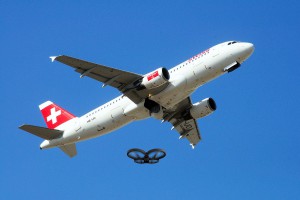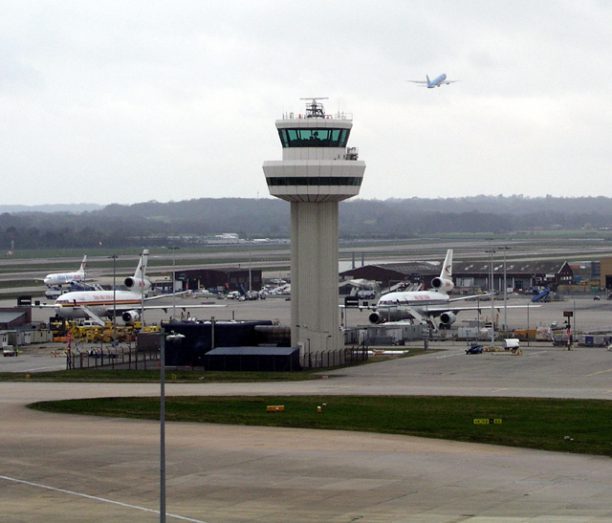
 CONTINUING BREAKING NEWS: It’s a terrible example of what one bad actor can do. For the third day in a row, Gatwick Airport was forced to cancel hundreds of flights and ruin the holiday plans for more than 100,000 passengers – all due to the appearance of unauthorized drones on the runway. As of Friday morning Gatwick has reopened – but nobody knows for how long.
CONTINUING BREAKING NEWS: It’s a terrible example of what one bad actor can do. For the third day in a row, Gatwick Airport was forced to cancel hundreds of flights and ruin the holiday plans for more than 100,000 passengers – all due to the appearance of unauthorized drones on the runway. As of Friday morning Gatwick has reopened – but nobody knows for how long.
British authorities have indicated that they don’t suspect state actors of causing the shutdown, but are looking at the possibility of “highly organized crime” or, some speculate, environmental protestors.
In any case, the drone “attack” – while the drones weren’t weaponized, their mere presence was sufficient to shut down a significant piece of U.K. infrastructure – has caused a situation accurately described by many news outlets as “chaos.” Police, security services, and military personnel have been called in to help capture the drone operator: drone mitigation tools ranging from sophisticated technology to sniper rifles have been deployed, at untold cost to airlines and the British taxpayer.
Lorenz Meier, co-founder of Auterion, a European-based provider of an open-source operating system for drones, weighed in on the situation at Gatwick Airport and it’s affect on the burgeoning commercial drone industry.
DroneLife: The situation at Gatwick is clearly unfortunate for the commercial drone industry. What went wrong in the space that allowed this to happen?
Meier: It only takes a phone call to disrupt an airport – however, what is different is that these calls can be traced back quite effectively and so the general public is aware of the consequences. It will be important to establish the same level of accountability for drone pilots through technical and administrative means. This will deter future cases and allow to end these situations a lot faster than in Gatwick.
DroneLife: How much long term damage (if any) does this do to commercial use of drones in the UK or elsewhere?
Meier: The huge economic and political impact of this can’t be understated. While the authorities have shown restraint so far, we expect that this will result in additional regulation for the whole drone industry on an international level. We would welcome steps that would increase the accountability of individual pilots, while not preventing the further commercial and recreational use. It will be paramount that secure, certified operators using proven software that integrates with the airspace are allowed to continue to operate.
DroneLife: Looking forward, is there anything can can be done to prevent this type of thing from happening again?
Meier: The incident shows that there has to be some form of either central registration of airborne systems or a type of drone transponder so compliant systems can be properly tracked. It will be up to the manufacturers to ensure these are as tamper-proof as possible. This would ensure that registered commercial operators can use drones commercially in the future. For rogue systems, different companies are already working on various systems to detect drones: and Boeing and others have proposed anti-drone lasers that sound like science-fiction today. I expect that some of these systems will find adoption in law enforcement agencies and will be in the future effective at mitigating even non-compliant systems.

